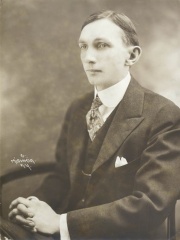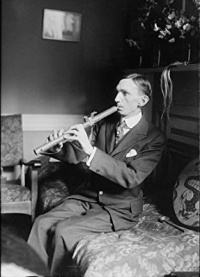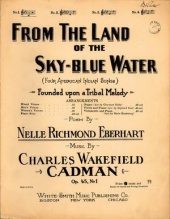Charles Wakefield Cadman: Difference between revisions
No edit summary |
No edit summary |
||
| Line 1: | Line 1: | ||
[[File:Cadman Portrait.jpg|right| | [[File:Cadman Portrait.jpg|right|180px|thumb|Charles Wakefield Cadman, portrait by Herman Miskin]] | ||
'''Charles Wakefield Cadman''' (December 24, 1881 – December 30, 1946) was an American composer who was a member of the [[American Theosophical Society]]. | '''Charles Wakefield Cadman''' (December 24, 1881 – December 30, 1946) was an American composer who was a member of the [[American Theosophical Society]]. | ||
== Personal life == | == Personal life == | ||
[[File:Cadman playing native american flute.jpg|right|200px|thumb|Cadman with Native American flute]] | |||
== Musical career == | == Musical career == | ||
Revision as of 15:42, 19 September 2017
Charles Wakefield Cadman (December 24, 1881 – December 30, 1946) was an American composer who was a member of the American Theosophical Society.
Personal life
Musical career
Theosophical Society involvement
Cadman was admitted to the Pittsburgh Lodge of the American Theosophical Society on September 28, 1907. During his years in the Society, he moved to Denver and Ft. Collins, Colorado, and eventually to Los Angeles. His membership became inactive on June 30, 1922.[1]
He was living at Krotona Institute of Theosophy in Hollywood, California when he and Camille Zekwer composed music for a theatrical version of The Light of Asia. The play ran for 35 performances in the Krotona Stadium that could seat 800 people, and also in Beachwood Canyon. Walter Hampden played the role of Buddha, and Ruth St. Denis performed with her Denishawn dancers.[2]


